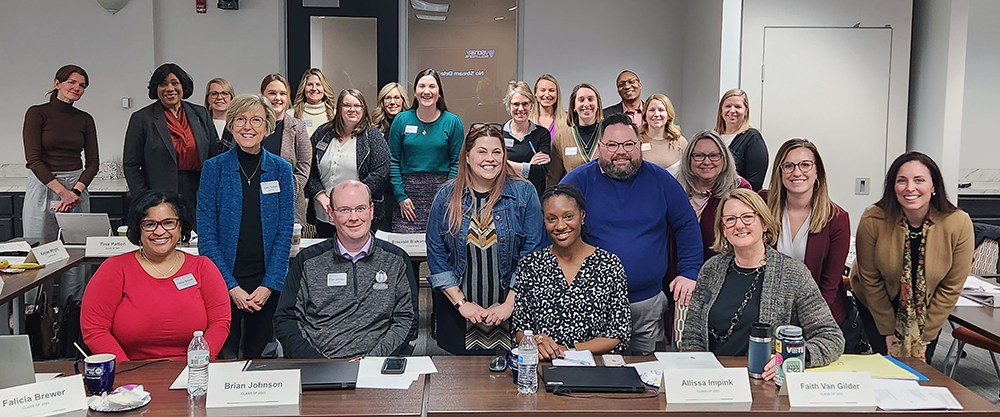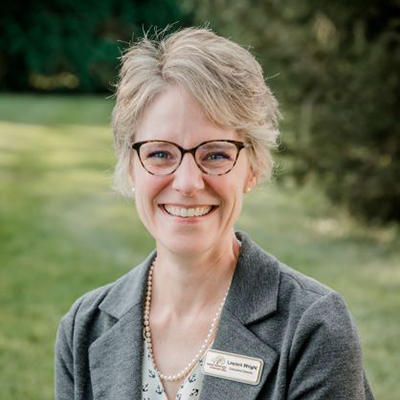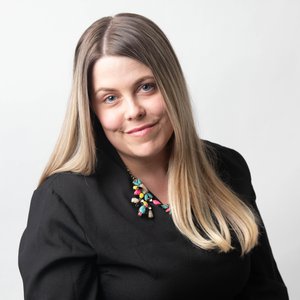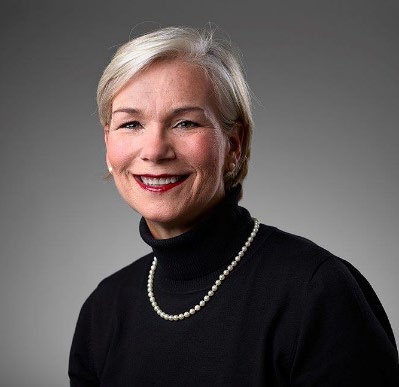Looking at Different Philanthropic Approaches

This blog was written by Leeann Wright, executive director of the Community Foundation of Pulaski County, to provide an inside look into her Mutz Philanthropic Leadership Institute class.
The 2023 Mutz Philanthropic Leadership Institute cohort was thrilled to gather at the Brightline Learning office in Indianapolis. Our deepest thanks to Mutz alumni Amber Kostoff (MPLI 2022) for hosting and Josh Kornberg (MPLI 2021) of Ceasars Foundation of Floyd County for sponsoring the day. It was interesting, informative, and inspirational.
Molly Martin of New America started our day. She asked us to consider our sector from a 'technologist' perspective: How is the digital age affecting and transforming philanthropy? She challenged us to take it further, to be philanthropic technologists, and utilize our knowledge and expertise to 'diagnose' questions in our sector. As funders, are we reactive or responsive? What other perspectives should be considered? How does policy affect our organizations? How do volatile environments affect us? Is it off-mission or an opportunity?
So many questions. The thread among them is that social change happens at the local level. We are the leaders in our community who can pull people together for hard conversations around social change – and Molly provided us with a path to become comfortable with being uncomfortable.
"If people are in the business of sinking ships, you can't just stand on the dock and assume they aren't there to sink your ship." - Molly Martin, sharing a grantee's words
Next up was “Community Collaboration” with Gretchen Gutman of Cook Group Incorporated. They partnered with Goodwill of Central and Southern Indiana and developed the Sankofa Economic Access Zone on the east side of Indianapolis. Classmate Elise Erikson Barrett was fired up on this topic. She shared:
So often, corporate culture relegates “philanthropy” to a well-intended marketing sidebar, thinking of it narrowly in terms of dollars donated to nonprofits. Corporate organizations, because they hold significant resources, have an opportunity to see their responsibility more holistically, and have the power to make change. Gretchen named three roles business can play: convene, amplify, and mobilize. The success of Cook’s partnership depended on the committed collaboration and leadership of a host of leaders and partners beyond Cook and Goodwill, and has required listening, relationship building, and real co-investment in a particular space. The work is not easy. But the impact of this kind of work multiplies. When done in mutual relationships with nonprofits, philanthropic organizations, and most crucially, community leaders and members, businesses like Cook are leading into a much broader vision of philanthropy – taking “voluntary action for the common good."
Our working lunch included “Data Informed Philanthropy” with Amanda Lopez of Transform Consulting Group. Amanda encouraged us to consider how data can be utilized for systematic change. As we look at data, we must always view it from the lens of our “why” – how does the data inform and impact our mission?
"We have to think about food deserts differently. We need to think about it as an entrepreneurial and economic development opportunity and ask what can I do as a funder?” - Gretchen Gutman
Data should not feel like punishment, but empowerment. By building the use of data into our organization’s daily culture, we can begin to strengthen organizational capacity for greater impact and become a data-informed agency. The first step is to focus on the four components of becoming a data-informed organization: clear metrics, data access, data literacy, and leadership buy-in. Data is hard! Data is necessary! Data is great!
Josh Kornberg of Caesars Foundation of Floyd County made an appearance alongside Ruthie Purcell Jones of the Arthur Dean Foundation. Classmate Emerald Blankenship found this presentation particularly insightful. She shared:
The goal for this session was for each of us to walk away with something to integrate into our work with a trust-based aspect. While this model focuses on what grantmakers can do to shift power dynamics and build relationships, the conversation was strengthened by our Mutz classmates who are on the receiving side of grantmaking. Both facilitators emphasized the importance of authentic relationships (aka trust). As funders, we must build trust with our nonprofit partners and shift our mindset to helping them accomplish their goals, not our own. Josh and Ruthie gave us a solid place to start the conversation within our own organizations: What can I do as a funder to remove the burden on an organization? The first step could be as simple as reducing the number of questions on the grant application or simplifying the reporting process. Any change toward minimizing the power differential between grantee and grantor is a step in the right direction.
Last, but not least, Jaclyn P. Dowd of the Lilly Endowment spoke to us about “Evaluation Methods.” This was, quite honestly, one of the most centering and calming experiences I have had in recent weeks. She started us off with a poem by David Whyte, which gave us the space to sit in a place of “not knowing” and allowed time for reflection and space for examining all directions. We focused on the positionality between funders and grantees – relationships are of utmost importance.
Evaluation is important, but quite often it is the process of learning through evaluation – evaluation methods should strive to pull out learning, rather than simply numbers served. Regarding reporting, Jaclyn noted, “Brevity is sometimes your best friend” as being concise is often a boon to those evaluating reports. Ultimately, the purpose of evaluation is to learn from the experience – how do grants build capacity? Affect leadership? Build infrastructure? Make an impact in a complex world?
Our class concluded the day with questions and ideas spinning through our minds. We were fortunate to receive an invitation from George Hanlin to reconvene, relax, and connect with one another as well as other Mutz Institute alumni at the Indiana Humanities offices. It was a welcomed opportunity to continue the conversations from earlier in the day, as well as opportunities to brainstorm and collaborate.



